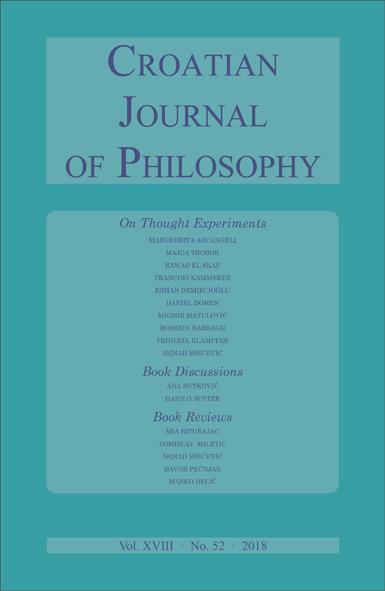Moral Thought-Experiments, Intuitions, and Heuristics
Moral Thought-Experiments, Intuitions, and Heuristics
Author(s): Friderik KlampferSubject(s): Metaphysics, Epistemology, Ethics / Practical Philosophy, Political Philosophy, Contemporary Philosophy, Philosophy of Mind, Philosophy of Language
Published by: KruZak
Keywords: Thought-experiments; moral intuitions; evidence; the Ticking Bomb; moral heuristics;
Summary/Abstract: Philosophical thought-experimentation has a long and influential history. In recent years, however, both the traditionally secure place of the method of thought experimentation in philosophy and its presumed epistemic credentials have been increasingly and repeatedly questioned. In the paper, I join the choir of the discontents. I present and discuss two types of evidence that in my opinion undermine our close-to-blind trust in moral thought experiments and the intuitions that these elicit: the disappointing record of thought-experimentation in contemporary moral philosophy, and the more general considerations explaining why this failure is not accidental. The diagnosis is not optimistic. The past record of moral TEs is far from impressive. Most, if not all, moral TEs fail to corroborate their target moral hypotheses (provided one can determine what results they produced and what moral proposition these results were supposed to verify or falsify). Moral intuitions appear to be produced by moral heuristics which we have every reason to suspect will systematically misfire in typical moral TEs. Rather than keep relying on moral TEs, we should therefore begin to explore other, more sound alternatives to thought-experimentation in moral philosophy.
Journal: Croatian Journal of Philosophy
- Issue Year: XVIII/2018
- Issue No: 52
- Page Range: 133-160
- Page Count: 28
- Language: English
- Content File-PDF

